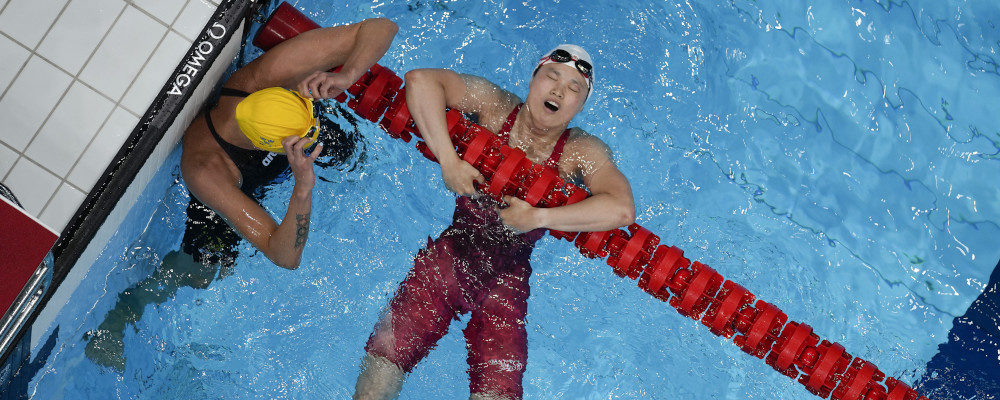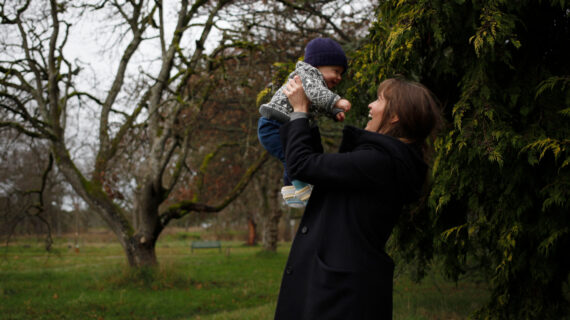The 2020 Summer Olympics in Tokyo are being held at an unusual moment in Canadian national life.
Not only are we facing the nagging uncertainty of the pandemic and the prospect of an unpopular federal election campaign, but the country has been going through a reckoning about its historic failings of Indigenous peoples and broader questions about its ongoing worthiness. Subdued Canada Day celebrations, including their cancellation in as many as 50 municipalities, reflected these complicated public sentiments about our imperfect past and present.
MORE SIGNAL. LESS NOISE. THE HUB NEWSLETTER.
This perceived gap between Canada’s high-minded ideals and its actual record seemed, at least temporarily, to have sapped a collective sense of good feelings about the country. That one third of respondents told pollsters in late June that they believe “Canada is a racist country” didn’t bode well for overwhelming expressions of patriotism in the context of the Olympic games. Half mast flags across the country symbolized this current spirit of nationalistic ambivalence.
Yet as the Olympics enter their second full week, it’s been impossible not to be swept up by the athleticism, determination, and youthfulness of the Canadian team. The performances of our female athletes, in particular, have been the source of great entertainment and tremendous pride in recent days.
Penny Oleksiak, Margaret Mac Neil, and others haven’t just dazzled us with their amazing personal accomplishments. They’ve reminded us that, notwithstanding the country’s imperfections, there’s still something worth celebrating about Canada. It’s a big idea that transcends sport and speaks to deeper, more fundamental questions about nationalism, identity, and our common experience.
This may be an anecdotal and non-empirical observation, but I’ve found myself more invested in this year’s Olympics than previous ones. A big part of that may reflect my own personal circumstances (including the ongoing pandemic restrictions) but, at some level, I cannot help but think it’s driven by an elusive search for something aspirational and positive at a time of such uncertainty and despair. At the precise moment that the idea of Canada is facing unprecedented scrutiny, I’m sub-consciously searching for something good to believe in.
I suspect my sample size of one may be representative of others who similarly have been following the Olympics more closely than usual. More than 2.35 million viewers tuned into watch Mac Neil win gold in the women’s 100-metre butterfly. And more than half of all Canadians had watched CBC television coverage of the games overall as of a week ago.
The relationship between the Olympics and Canadian nationalism isn’t new.
This year’s Olympics have provided Canada with the basis of a modern redemption story: the country’s best athletes (many of whom belong to ethnic or religious minorities) have been given the implicit responsibility of helping to rebuild a sense of Canadian nationalism.
It’s fair to say that they’re succeeding. The Olympic model of head-to-head competition between athletes representing individual countries is arguably one of the most powerful expressions of nationalism in the modern age. Seeing our athletes compete and win in such a high-pressure context invariably produces a sense of unity and pride. It’s an opportunity to temporarily suspend contentious debates about colonialism, genocide, and systemic racism and just feel good about the country for a moment.
Canada’s athletes represent the fundamental promise of the highly imperfect yet fundamentally aspirational Confederation project: the notion that Canada and its peoples were not only capable of, but were indeed predestined for, greatness. Oleksiak, who at the age of 21 has already become Canada’s most decorated Olympian ever, personifies the best aspects of this aspirational impulse.
The whole experience has reminded me of Churchill’s famous 1951 remark about Canada: “There are no limits to the majestic future which lies before the mighty expanse of Canada with its virile, aspiring, cultured, and generous-hearted people.”
It would seem that Oleksiak and the rest of the Canadian female swim team have internalized this insight. They’ve embodied the Churchillian no-limits ethos as evidenced by their impressive medal performances (and still counting) against the world’s best competition. That’s bound to stir up some nationalistic feelings.
The relationship between the Olympics and Canadian nationalism isn’t new, by the way. In March 2010, Ipsos polled Canadians on behalf of The Historica-Dominion Institute in the days following the Vancouver Olympics (which were held between February 10 and February 28, 2010) to determine whether they had contributed to a stronger sense of Canadian nationalism.
The data were quite overwhelming. Consider the following:
- 80 percent of respondents self-described as “Canadian nationalists”
- 94 percent said they were “proud of [their] country”
- 90 percent said that if they could live in any country in the world, they’d select Canada
- 83 percent said that “Canada’s Olympic athletes” inspired them
I’ve always had a hypothesis that this nationalistic boost that followed from the Vancouver games contributed to the Conservative government’s majority win in the following 2011 election. As the political party most comfortable with a positive view of the country and its history, Conservatives were uniquely positioned to benefit from these elevated public sentiments of patriotism and pride.
(This hasn’t changed much either: according to the Angus Reid Institute, only 18 percent of Conservatives believe Canada is an inherently racist country, compared to 38 percent of Liberals and 55 percent of New Democrats.)
One wonders if we’ll see a similar nationalistic surge in the aftermath of the Tokyo games. We could sure use it right about now.
While the recent reckoning with Canada’s historic failings and renewed efforts to bring voice to marginalized and discriminated peoples are a crucial part of the process of reconciliation, we shouldn’t lose sight of the inherent promise of our country and society. It’s precisely what enables us to confront these past wrongs and continue to make progress towards our idealized vision of the country and ourselves.
In that sense, Canada’s Olympians are a metaphor for our own ongoing pursuit of individual and collective improvement. I’m rooting for them and the rest of “the virile, aspiring, cultured, and generous-hearted people” who make up this country.




